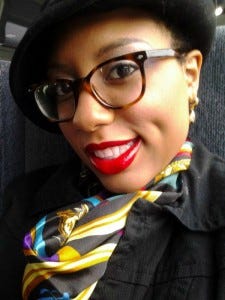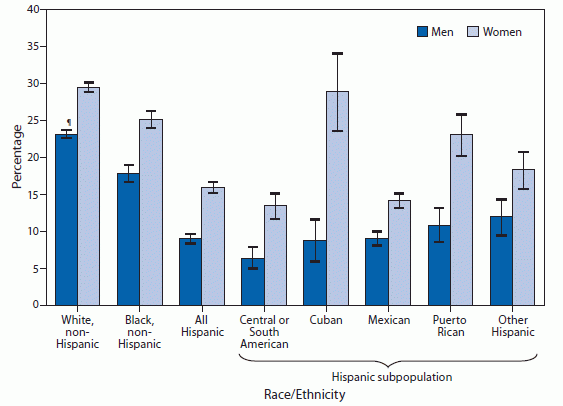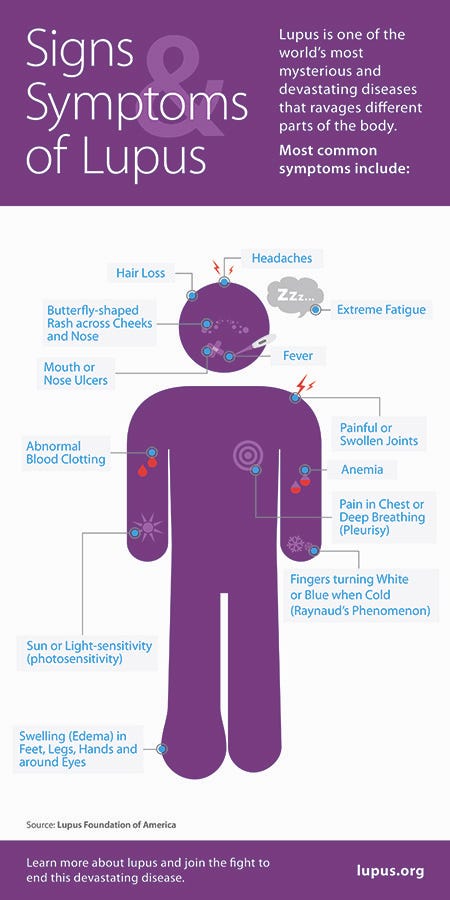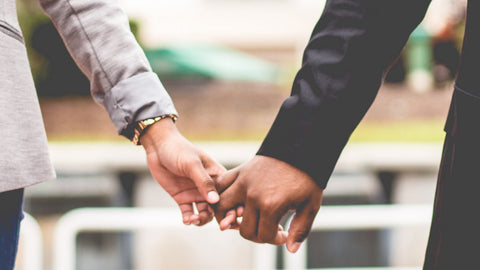Voicing The Pain of Lupus For Thousands
By Fallon Davis
In America over one million people are diagnosed with severe lupus. Out of that one million, about 20 percent of children are affected by the autoimmune disease.Statistically, women make up the majority of Lupus patients with African-American, Latino and Asian races being the most affected. Although males get the disease far less than women, men over the age of 50 and children 18 and under are usually diagnosed. 
Lupus has been claimed to be a “non-threatening” disease because many people don’t look sick on the outside or do not display obvious symptoms.Based on the numbers from the millions of people dealing with the many ailments such as joint pain, stroke, hemorrhages, neurological problems, seizures, skin and sometimes kidney failure — Lupus is incredibly serious and needs immediate attention to avoid disability or even death.Tiffany Marie Peterson has been living with Lupus for a little over 6 years. In that short time, she’s become a voice for many others. Dealing with a severe case of Lupus, Tiffany fulfills her purpose informing people like herself by speaking at several events throughout the country about Lupus. She inspires others by detailing her daily experiences and has started #LUPUSCHAT and Friends Against Lupus to help doctors, patients and their families make sense of a complicated disease.

How old were you when diagnosed with Lupus and how did you feel after receiving the news?
I was 24 years old, so roughly about 6 years ago.What would you say is a constant battle for you dealing with the disease? What humps are the hardest to get over? Does your doctor recommend meds or an organic regimen? When have you had a hard time/point in your life dealing with Lupus? Dealing with family members?
When I was diagnosed, my biological father found it very difficult to accept my diagnosis. Even though he was there to see all the frustrating changes my body experienced after lupus, still he refused to accept it. Sadly, this happens to many others living with lupus and chronic health conditions.
How did you get connected with SLE Lupus Foundation and what do you do for them? Why did you start Lupus Chat? Friends Against Lupus? What are the goals of the community?
Friends Against Lupus was created in 2010 as a public forum for me to share my new health status with my friends and family so they would understand why I was no longer social. I wasn’t really telling anybody what was going on because I didn’t know. I kept it public because I figured there were probably many others searching for health information and community support for lupus online.I created “LupusChat” two years later. At that time there were frequent health conversations happening on Twitter. There wasn’t a similar space for conversations on lupus so I decided to create one.
What do you recommend as far as diet?
The easiest way to realize what things you can eat and what things you can’t eat is to keep a food or health diary. The minute you wake up, the first thing you do is record how you feel. If you have pain, write how painful it was, where the pain is, etc.
Are you involved in any other activities? What do you suggest are best practices for someone with your condition?
Make sure you prioritize yourself first. A lot of people mistake that for being selfish, and that’s untrue. Putting yourself first will help you move forward and be more positive. Tomorrow is not guaranteed.
Knowing what you know now about living with Lupus, what would you tell your younger self?
I will be representing the Alliance for Lupus Research, SLE Lupus Foundation, and the Lupus Research Institute in Albany this month. One of my biggest goals is to have doctors and nurses, and all healthcare stakeholders regularly engaged with the LupusChat community regularly.If you are dealing with Lupus and have questions for Tiffany, send her a request at TiffanyandLupus.com

